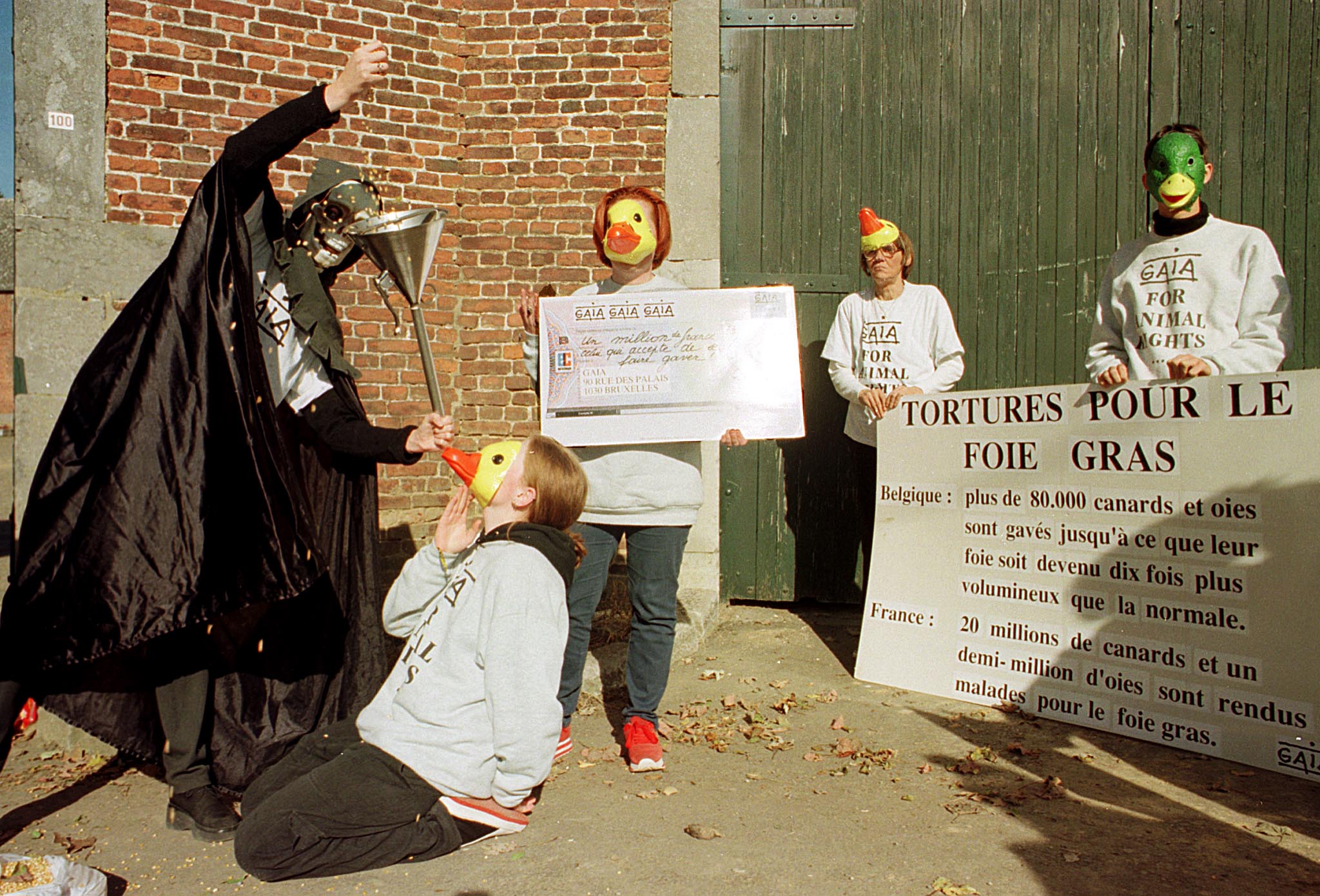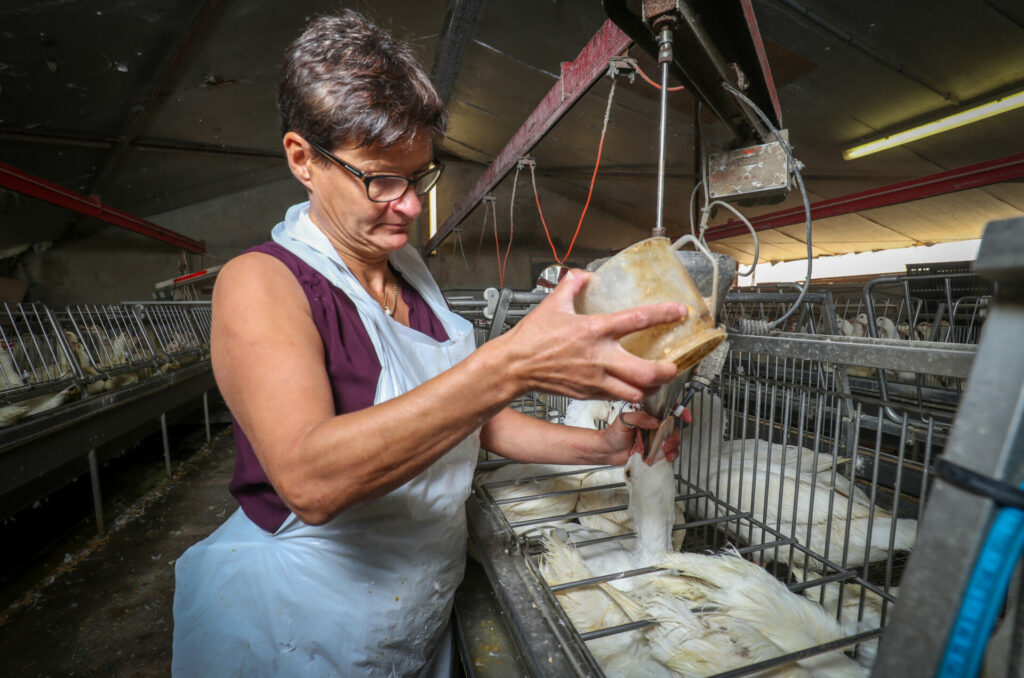With Christmas approaching, many families are thinking of what to eat during the holiday period. For many, foie gras is on the menu – a food which in production often involves force-feeding ducks and geese, a controversial practice that will soon be phased out in Flanders.
From 1 January, Flanders will be force-feeding-free as the last company producing foie gras in the region, a company in Ichtegem in West Flanders, will put a stop to the use of such practices. Ducks and geese are force-fed a fatty corn-based substance through a tube inserted into their throats, which results in large amounts of fat being deposited in the liver, causing it to grow up to ten times its normal size.
"We are again saying goodbye to an outdated practice, just as we did with unanaesthetised slaughter, block tails and fur farming," said the region's Animals Minister Ben Weyts. "Force-feeding is still economically profitable, but as a civilised society, we consider animal welfare more important."
'Extinction scenario'
The milestone is the last of an extinction scenario for force-feeding in Flanders launched by Weyts. It stated that force-feeding had to be ended by the end of 2023 at the latest. The last company that fed ducks against their will to produce foie gras will close sooner, meaning the practice will be banished about a year before the predetermined deadline.
"I am glad that the company does not necessarily want to continue until the bitter end," said Weyts. "We no longer want these activities in Flanders, but we have ensured compensation. This way, the company can stop these activities in a humane way."

GAIA's activists were already demonstrating against force-feeding in 1999. Credit: Belga/ Jacques Collet
A "fair financial arrangement" has been agreed upon for the people behind the business, with the Flemish Government providing compensation, but with a clear financial incentive to stop force-feeding before the deadline, as the compensation amount will drop the longer companies wait to fully banish the practice.
Related News
- Importing puppies to be banned in Wallonia from 2026
- Animals are not gifts: Campaign to stop irresponsible purchases
Weyts added that for this measure to be truly impactful, the "fight against force-feeding must now continue at the European level," where unrealistic requirements attached to the production of foie gras state a duck liver must be fattened to 300 grams and a goose liver to 400 grams, six to ten times the weight of a healthy animal's liver.
"Flanders is taking the lead within Europe for more animal welfare," said Weyts. "A civilised society has a damned duty to avoid avoidable animal suffering to the maximum extent."

